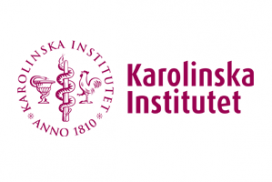“Rapid therapy development through Open Coronavirus Vaccine Platform” – Spotlight on ERINHA Swedish node research activities
 |  |
OPENCORONA consortium has been awarded €3m funding by the European Commission Horizon 2020 emergency call to support research and development against the COVID-19 outbreak, aiming to develop a vaccine for the novel virus.
The Consortium is led by Karolinska Institute, ERINHA-Advance partner, and brings together, Public Health Agency of Sweden (FoHM – ERINHA Swedish node), Cobra Biologics, Karolinska University Hospital, IGEA, Adlego AB and Giessen University.
The project aims to develop and produce a vaccine against the new coronavirus, SARS-CoV-2. Several vaccine candidates currently available at the Department of Laboratory Medicine of Karolinksa Institute will be tested. The first animal studies aimed to start at the end of March, according to Head of Department, Pr. Matti Sällberg who is leading the effort together with researchers Pr Ali Mirazimi and Gustaf Ahlén.

The aim is to develop a vaccine candidate against SARS CoV 2 and carry out a Phase I clinical study. The first trials in humans are likely to begin in 2021 and will take place at the Karolinska University Hospital.
One of the first preclinical steps will be to test two vaccine candidates in rabbits to characterize the elicited immune response. In addition, one of the researchers’ ambitions is to develop a pan anti coronavirus vaccine to prepare for any future coronavirus outbreak.
Matti Sällberg, Head of Department of Laboratory Medicine, Karolinska Institute, commented: “The need to find an effective vaccine is urgent and we are working as quickly as possible to find one”.
Professor Ali Mirazimi, clarified on the role of the Public Health Agency of Sweden, ERINHA Swedish node: “We will establish in vitro neutralization assays for SARS-CoV-2 and animal models for SARS-CoV-2. In addition FoHM will determine the efficacy of all involved vaccine candidates infectious model systems. Moreover, FoHM will investigate the protective immunity against COVID-19 in the infectious animal models.”